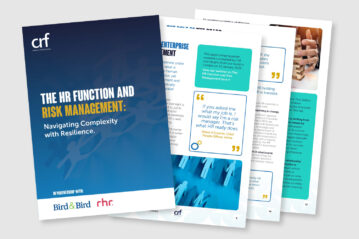Guiding the Company’s Future: Insights from RHR’s CEO Succession Webinar
November 13, 2025

RELATED POSTS

Insight
4 days ago
Risk Isn’t a Register: A...

Insight
13 days ago
Corporate Research Forum: The...

Insight
1 month ago
The CHRO’s Expanding Role...

Insight
1 month ago
A View to the Future:...

Insight
1 month ago
How to Make Behavior Change...

Insight
2 months ago
What Kind of Leader Do You...





